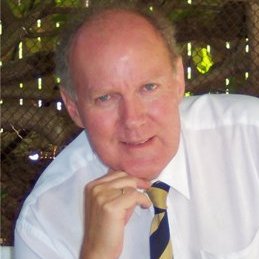Opinion Pieces: Road Pricing – Think outside the square
[caption id="attachment_1645" align="alignleft" width="259"] Professor David Hensher[/caption]
Professor David Hensher[/caption]
Opinion Pieces: since 2007, Prof. David Hensher has written an opinion column in the Australasian Bus and Coach magazine, where he monthly discusses a lot of different transport-related hot topics. In this section we are revisiting these columns.
November 2011
Road pricing reform remains a challenging issue that politicians ‘appear’ to believe in but are most definitely not showing any active signs of doing anything about it other than encouraging a dialogue. The stumbling block is the dominant view that while we should reform all road user charges (i.e., registration and fuel excise), the focus in the media and many government documents does not seem to be able to focus away from a congestion charge (or the emotive laded congestion tax). Australia is not the only country suffering from this, and although we should still continue to find ways of reducing traffic congestion, the ‘solution’ may reside in a pricing solution that actually pays peak period commuters to travel outside of peak hours? How might this work?
A Dutch proposition that has recently been tested may hold the answer. They have cameras registering all road users for eight weeks, without telling the road users. They then extract a list of road users that have been detected in the peak period at least three times a week, and send them an invitation letter. A payment is made according to their reference number of trips in the peak, so if they were initially driving three times a week in the peak and during the payment period only once a week, they get paid twice an amount (e.g., 3 to 5 Euros in trials). In one trial, it is an amount per avoidance of the peak, in another trial it is the number of reduced kilometres driven, as detected by the onboard GPS units. Results from initial analyses of six such trials show that about 50 percent of the travellers avoid the peak period when rewarded. Having a few thousand participants, this can make a clear difference in traffic conditions. For further details visit this website.
Another possible way of looking at this that would be even better is to link to a so-called credit-based system, in which you can earn credits driving off peak and spend them on the peak. The reason for not doing this in the Netherlands is simply a legal issue. You can always reward people, but charging people has legal issues and needs to be set by law and the tax office, which takes a long time. So a reward system as described above can be set up from scratch within a few months, making it a very practical tool for temporarily alleviating congestion.
Would this appeal to State and Federal Governments in Australia? The advantage is that no one is priced off the roads which must surely gain political support, but some will be rewarded if the switch trips from peak to off-peak periods, which must surely be a huge benefit in terms of recovery of lost travel time (which is quoted as the cost of congestion). The downside is finding sufficient funds to pay for pay the time of day switching incentive payment. Earning credits through avoiding peak congestion charges and then funding this from the congestion charges imposed on those who travel during peak periods seems the ideal situation but it still entails a congestion charge. So on the reasonable assumption that politicians will baulk at this idea, the way forward may be to consider allocating some of the fuel excise to reward those who switch from the peak to off peak periods. GPS is critical since we must ensure that true switchers are rewarded and not those who already avoid the peaks.
Food for thought
¿Comments? ¿Opinions? ¿Similar News? Send them to us!
